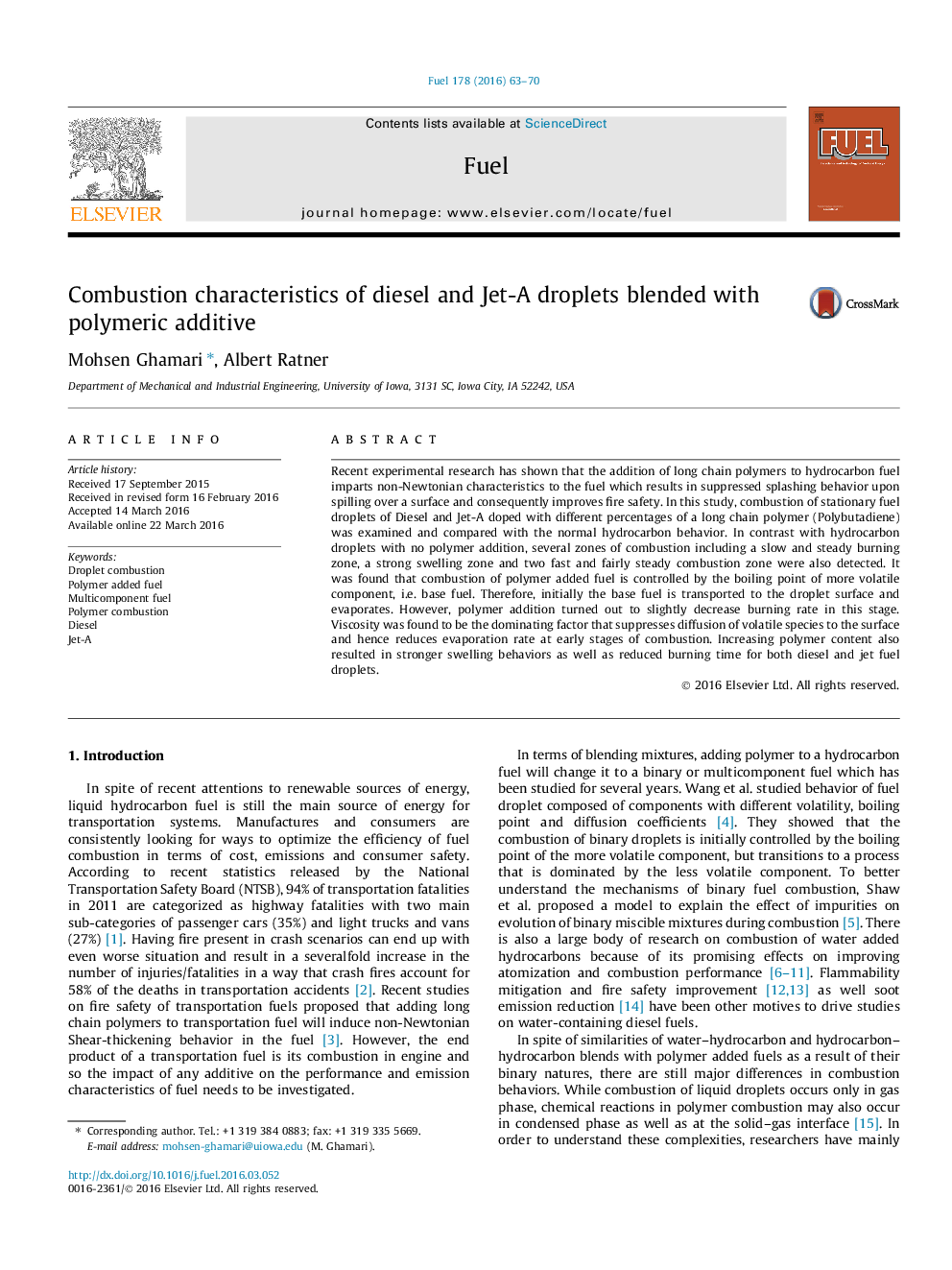| Article ID | Journal | Published Year | Pages | File Type |
|---|---|---|---|---|
| 204998 | Fuel | 2016 | 8 Pages |
Recent experimental research has shown that the addition of long chain polymers to hydrocarbon fuel imparts non-Newtonian characteristics to the fuel which results in suppressed splashing behavior upon spilling over a surface and consequently improves fire safety. In this study, combustion of stationary fuel droplets of Diesel and Jet-A doped with different percentages of a long chain polymer (Polybutadiene) was examined and compared with the normal hydrocarbon behavior. In contrast with hydrocarbon droplets with no polymer addition, several zones of combustion including a slow and steady burning zone, a strong swelling zone and two fast and fairly steady combustion zone were also detected. It was found that combustion of polymer added fuel is controlled by the boiling point of more volatile component, i.e. base fuel. Therefore, initially the base fuel is transported to the droplet surface and evaporates. However, polymer addition turned out to slightly decrease burning rate in this stage. Viscosity was found to be the dominating factor that suppresses diffusion of volatile species to the surface and hence reduces evaporation rate at early stages of combustion. Increasing polymer content also resulted in stronger swelling behaviors as well as reduced burning time for both diesel and jet fuel droplets.
